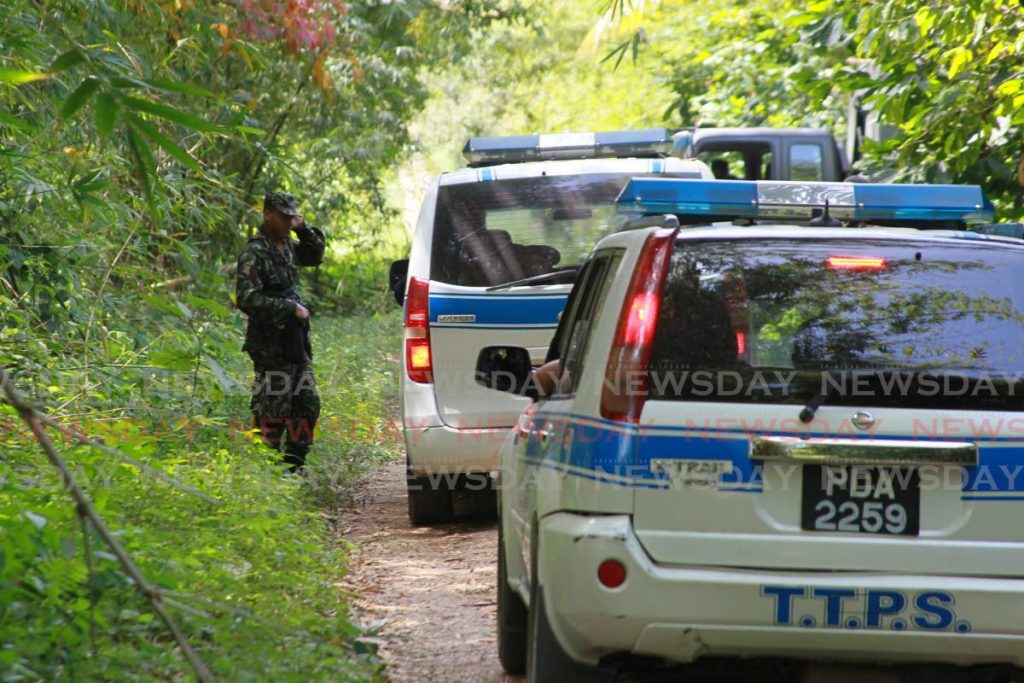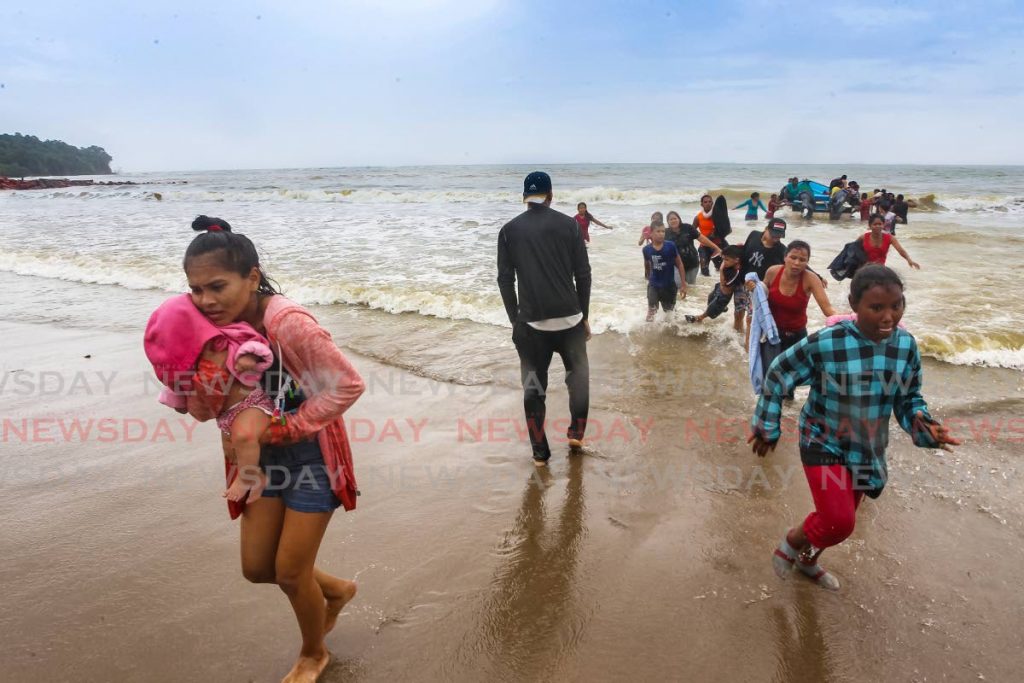US unveils 2021 Human Rights report on Trinidad and Tobago: Slow pace of judicial proceedings creates climate of impunity

THE UNITED States Department of State recently released its 2021 Human Rights Report and found credible reports that members of the security forces committed abuses.
Those “significant human rights issues” included unlawful arbitrary killings by police, refoulement (the forcible return of refugees of asylum seekers to a country where they are likely to be persecuted or punished) and “serious acts of corruption” and human trafficking, the report said.
The 2021 Human Rights report also spoke to issues such as refugees, prison conditions and corruption. It cited some of the hotly debated and covered stories of 2020 to 2021 as examples.
The report was released on April 12 by US Secretary of State Antony J Binken and it documents the status of human rights and worker rights in 198 countries and territories around the world.
The 21-page document looked at issues under seven sections: respect for the integrity of the person, respect for civil liberties, freedom to participate in the political process, corruption and lack of transparency in government, governmental posture towards international and non-governmental investigation of alleged abuses of human rights, discrimination and societal abuses and worker rights.
Under these sections, issues such as arbitrary deprivation of life and other unlawful or politically-motivated killings, prison conditions, treatment of detainees, internet freedom, protection of refugees and sexual harassment were also addressed.
The report acknowledged the Government took steps to identify, prosecute and punish officials who committed human rights abuses or corruption but impunity (exemption from punishment) continued because of “open-ended investigations,” and the slow pace of criminal judicial proceedings.
Citing the Andrea Bharatt kidnapping and killing and the arrest of four suspects in that matter, the report said there were “credible reports” that police committed arbitrary or unlawful killings.
It cited the deaths of suspects Joel Balcon and Andrew Morris.
“In February, the Police Complaints Authority (PCA) and the Professional Standards Bureau launched investigations into the deaths of Balcon and Morris. In October the PCA completed its investigation and concluded that Balcon and Morris were subjected to torture and acts of violence that led to their deaths. The case was referred to Director of Public Prosecutions Roger Gaspard, who at the end of the year (2021) was reviewing PCA findings and had not determined whether to file charges,” it said.
It found as well that although TT’s law prohibits use of excessive force, it found that “there were reports that police officers and prison guards sometimes used excessive force.”
“Despite government steps to punish security force members and other officials charged with unlawful killings or other abuses, open-ended investigations and the generally slow pace of criminal judicial proceedings created a climate of impunity,” the report said.
Poor conditions/overcrowding in TT’s prison
As for TT’s prisons, the report found conditions in some of the system’s nine facilities “continued to be harsh due to overcrowding.”
It said all of the prisons had inadequate lighting, poor ventilation, and inadequate sanitation but conditions at the sole women’s prison were better than those in other prisons.
The report said lengthy pre-trial detention was a problem and pre-trial detainees made up more than two-thirds of the prison population.
It added that most detainees’ trials began seven to ten years after arrest and some spent even longer in pre-trial detention.
“The length of pre-trial detention frequently equalled or exceeded the maximum sentence for the alleged crime. Officials cited several reasons for the backlog, including the burden of the preliminary inquiry process,” it said.
As for arbitrary or unlawful interference with privacy, family, home, or correspondence, TT’s law prohibits that and there were no reports that the Government failed to respect these prohibitions, the report said.
Media and Freedom of Expression
While the report found that the Government generally respected the right to freedom of expression, it said it sometimes used the “antiquated Sedition Act to limit freedom of expression, according to some non-governmental organisations (NGOs).” It said the Government used the sedition law against former PSA president Watson Duke and against former secretary general of the Sanatan Dharma Maha Sabha Sat Maharaj.
The US Human Rights report further said Government did not restrict or disrupt access to the internet or censor online content.
It added that there were no credible reports that the government monitored private online communications without appropriate legal authority.
Last week, the Opposition Leader accused the Government of spying on key members of society, including the media, judiciary, businesses, trade unions, political opponents and politcians, using special software.
Refugees
The report said although TT is a party to the 1951 convention of the status of refugees, the law does not provide for granting asylum or refugee status and the Government has not established a system for protecting asylum seekers.
It said access to asylum remained a significant problem for detained individuals since there were no formal procedures to register asylum seekers.
It added that as of October last year more than 20,800 refugees and asylum seekers in TT were registered with UNHCR.“ UNHCR’s registered population of concern originated from 40 different countries; of these people, 86 per cent were from Venezuela and seven per cent from Cuba,” it said.

Corruption
The report said that corruption was a problem at many levels of Government.
“Opaque public procurement processes were a concern. Statutes governing conflicts of interest were rarely enforced, making nepotism and corruption commonplace.
“There were credible reports of government ministries and public companies manipulating or bypassing established procurement procedures to favour specific vendors unfairly,” it said.
It cited examples with one of them being a municipal official being charged in July, last year, with misbehaviour in public office for domestic violence and societal abuses.
The report found that the Government generally enforced the law in instances of rape but the “courts often imposed considerably shorter sentences in cases of spousal rape.”
It said that while TT’s law criminalised domestic violence and provided protection orders, victims who reported the crime often claimed that “police trivialised the matter.”
“Courts may fine or imprison abusive spouses but rarely did so.
“Rape and domestic violence were serious and pervasive problems. According to the UN Global Database on Violence against Women, 30 per cent of women in the country experienced physical or sexual violence from an intimate partner in their lifetime, and 19 per cent experienced sexual violence from a non partner,” it said.


Comments
"US unveils 2021 Human Rights report on Trinidad and Tobago: Slow pace of judicial proceedings creates climate of impunity"